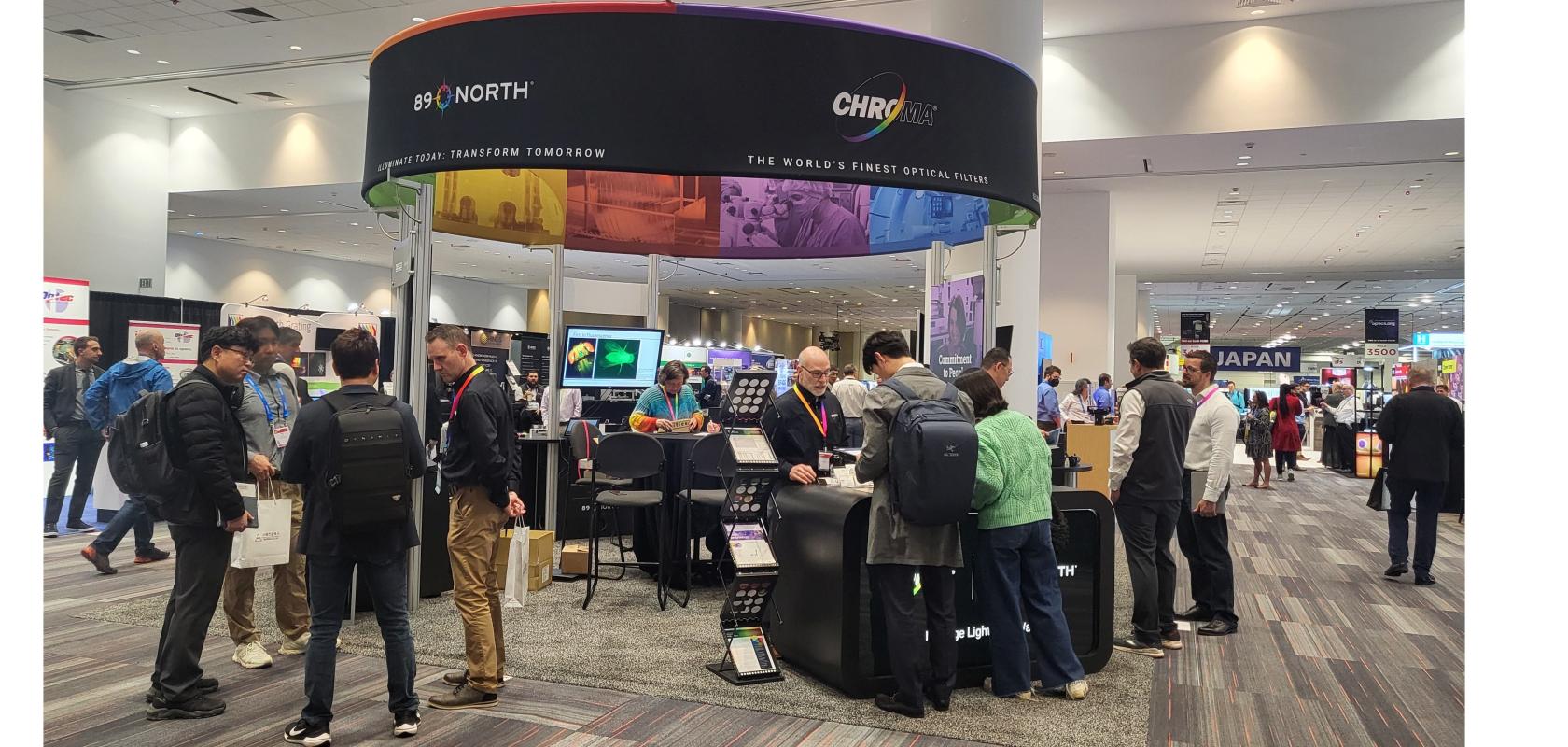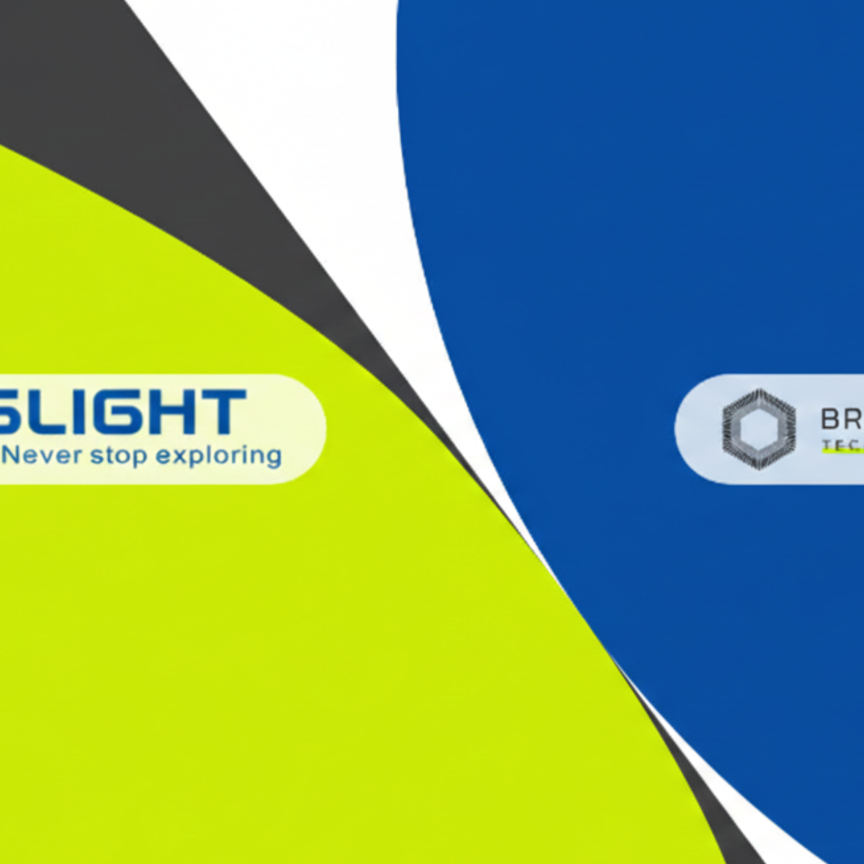On visiting optical filter manufacturer Chroma Technology’s booth at Photonics West this year, Electro Optics learnt how the firm very recently introduced new rapid prototyping capabilities for its wide array of customers.
This includes those looking to manufacture optical filters in both high- and low-volume production settings.
“While customers can often understand all the theory and design a new filter themselves, getting an actual, physical working prototype to validate their design quickly can often be challenging,” said Eric Felkel, Manager of Product and Design Engineering at Chroma. “In being able to deliver this capability, we are able to dramatically reduce their time-to-market, particularly when prototyping highly customised optical filters.”
Chroma is able to rapidly prototype a whole manner of optical filters: Single and multi band pass filters, edge & notch filters, dichroic filters, neutral density filters, excitation filters, emission filters, and more. These are produced for a wide range of applications including spectrometry, astronomy, machine vision, fluorescence microscopy and colorimetry.
Rapid filter prototyping: A rare capability
Electro Optics asked Felkel what makes the firm so capable in delivering its new rapid prototyping capabilities: “We’ve got a huge amount of experience in both the design and product application aspects of filter development. This enables our engineers to very quickly assess a set of requirements from our customers and identify the required approach to develop their prototype. In addition, we have an extensive inventory of substrates and materials, as well as excellent relationships with our supply chain should we not have everything in-house already. What’s more, if a customer’s specifications come close to any of the 20,000 unique filter designs we have in our library, we can reach a prototype even quicker than normal. Lastly, we’re a very vertically integrated company, and so we do all the design, engineering and manufacturing ourselves. Having all of this capability in-house and under our control is what really lets us respond to our customers’ prototyping requirements quickly.”
According to Felkel, this rapid prototyping capability is not commonly found among filter manufacturers. He explained that while others may have the ability to prototype standard filter designs quickly, they are not necessarily able to respond as rapidly when it comes to highly customised specifications, coming across more hurdles in reaching their final design. “And then being able to flick the switch from having a custom design to being able to rapidly produce an actual physical prototype, that’s also a rare capability,” he said.

Chroma Technology showcased a wide range of custom optical filter examples on its Photonics West booth. The firm is well situated, well staffed and well equipped to flexibly respond to its customers' prototyping needs
Georg Draude, European Sales Manager, told Electro Optics that one of the reasons Chroma stands out, particularly in the rapid prototyping of custom filter designs, is that it is one of the last remaining independent filter companies serving the market. “Many of our competitors have been acquired over the past few years,” he said. “This has led to them moving more in the direction of bigger machines for high-volume manufacturing. They could, for example, be delivering orders for the automotive industry at volumes of say five million filters per year (for us ‘high-volume’ is more in the region of hundreds of filters/filter sets for a customer). But in doing this there is often a compromise in that they are no longer able to produce smaller, customised prototyping benches as easily (their machines are not geared towards this). This leaves a gap in the market that Chroma can address: flexibility and rapid delivery in custom optical filter prototyping."
The right tools for the job
Part of this flexibility comes from Chroma having a large number of medium-sized production machines, as opposed to a small number of larger machines that are better suited to the exceptionally high-volumes targeted by larger, non-independent filter manufacturers.
“We can therefore be very nimble with the jobs we're taking on, and can actually run a large number of them simultaneously,” explained Felkel. “For example, we could be running a long-term serial job for a customer on one machine, while using another machine to produce a custom prototype for a different customer. The machines are automated to a level where we can get them up and running very quickly, with each of our technicians being able to manage multiple machines. It's having this diverse fleet of equipment that lets us respond more flexibly and rapidly to custom optical filter prototyping demands.”
How fast is “rapid”?
In terms of how long Chroma is offering its customers for rapid prototyping, the answer, as one might expect, depends on the desired specifications of the custom filter.
“If a customer’s specifications are close to any of our individual designs of which we’ll likely have the required substrates and materials on hand, then we can make slight adjustments to that design and likely deliver a prototype within the space of two weeks,” said Draude. “If a design differs dramatically from those in our existing library, or requires particularly specialised substrates and materials that we need to obtain externally from our suppliers, then prototyping will likely take slightly longer. The exact time will of course depend on whether our suppliers have the required materials readily available, but we strive to complete most jobs within the space of 2-4 weeks.”
In summary, Choma’s sales team is globally positioned the most technically adept in the industry, so the conversation of what’s possible begins as soon as the customer makes contact, and this front-line triage skill also helps shorten the time to prototype.
Learn more at: www.chroma.com


